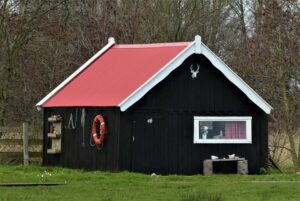In Shepparton, the choice between farm sheds made of steel and wood involves weighing various factors including durability, maintenance, cost, environmental impact, and sustainability. Steel farm sheds are robust, withstanding severe weather conditions like intense UV rays, torrential rain, and powerful winds due to their galvanized or coated finishes. They require straightforward upkeep involving periodic cleaning and repainting, which is generally less demanding than the maintenance of wooden sheds. Wooden farm sheds offer a traditional aesthetic that some farmers may prefer. However, they demand consistent pest and weather treatment to prevent rot and decay, which can be more labor-intensive and costly over time. While wood may initially appear more affordable, the long-term financial investment includes the recurring costs of maintenance and treatments. Steel sheds tend to offer a longer service life with regular upkeep, making them a potentially more sustainable and economical choice in Shepparton's agricultural context.
Steel farm sheds are constructed from recycled materials and have a lower carbon footprint due to their energy-efficient production process, aligning with sustainability goals. They also boast a longer lifespan and require minimal maintenance, which contributes to their long-term sustainability. Wooden farm sheds can be sustainable when sourced from responsibly managed forests, and their natural insulation properties help in maintaining comfortable temperatures within, potentially reducing energy consumption. Both material types offer different environmental benefits and should be carefully considered by farmers against Shepparton's climate and their specific sustainability objectives. Ultimately, the decision between steel and wooden farm sheds in Shepparton should be based on a comprehensive evaluation of short-term costs versus long-term savings, environmental impact, and the unique needs of the agricultural operation.
In Shepparton’s agricultural heartland, the choice between steel and wooden farm sheds shapes not just storage solutions but also economic landscapes. This comprehensive analysis delves into the key factors influencing their adoption—durability, financial implications, design versatility, and environmental footprints. Farmers must navigate these aspects to select the most suitable shed type for their needs. From assessing the resilience against Shepparton’s climatic conditions to understanding the long-term costs, this article offers a clear comparison of steel versus wooden farm sheds, ensuring informed decisions for sustainable and efficient agricultural operations.
- Evaluating Durability and Maintenance: The Longevity Battle Between Steel and Wooden Farm Sheds in Shepparton
- Cost Analysis: Weighing Initial Investment and Long-Term Financial Implications of Steel vs Wooden Farm Sheds
- Customization and Design Flexibility: Tailoring Your Farm Shed to Local Climates in Shepparton
- Environmental Considerations: Assessing the Eco-Impact and Sustainability of Steel and Wooden Farm Sheds
Evaluating Durability and Maintenance: The Longevity Battle Between Steel and Wooden Farm Sheds in Shepparton
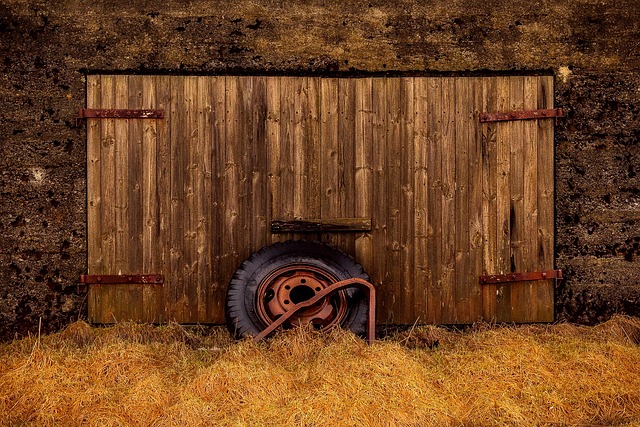
When assessing farm sheds in Shepparton for durability and maintenance, both steel and wooden structures present unique advantages and challenges. Steel farm sheds are renowned for their robustness against the elements, particularly the harsh UV rays, heavy rainfall, and strong winds common to the region. The corrosion-resistant nature of galvanized or coated steel ensures these sheds can withstand environmental factors that might compromise wooden counterparts. Regular maintenance on steel sheds typically involves cleaning and occasional repainting to maintain its integrity, a process that is generally less labor-intensive than the upkeep required for wooden sheds.
On the other hand, wooden farm sheds in Shepparton offer a traditional aesthetic that some farmers may prefer. While wood requires more attentive maintenance, including treatments to protect against pests, rot, and weathering, it can be an economical choice initially. However, the long-term costs must account for potential repairs or replacement due to deterioration over time. The longevity of a wooden farm shed can vary greatly depending on the type of wood, quality of construction, and the care it receives. In contrast, steel sheds often boast a longer lifespan with proper maintenance, potentially offering a more sustainable long-term investment for farmers in Shepparton looking to protect their equipment, livestock, or crops.
Cost Analysis: Weighing Initial Investment and Long-Term Financial Implications of Steel vs Wooden Farm Sheds
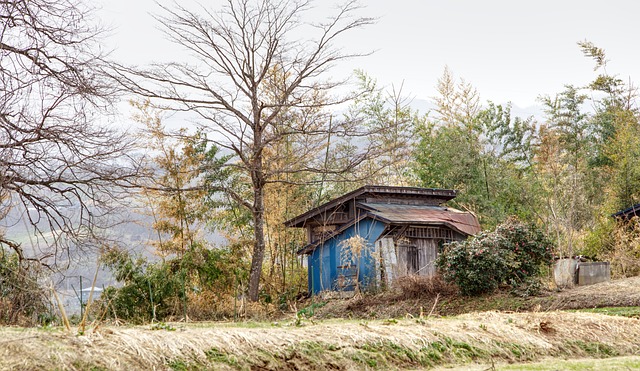
When considering the construction of farm sheds in Shepparton, both steel and wooden options present unique financial implications that span from the initial investment to the long-term maintenance costs. Steel farm sheds typically demand a higher upfront cost compared to their wooden counterparts. However, this initial expense often translates into lasting durability, as steel structures are resistant to rot, pests, and extreme weather conditions, thereby potentially reducing repair and replacement expenses over time. Conversely, wooden sheds may initially appear more cost-effective, yet they require regular maintenance, such as painting or treatment against decay and infestation, which can accumulate into significant outlays in the years following their construction.
Moreover, while steel farm sheds might carry a steeper initial price tag, their longevity can offer a more economical solution over the decades. They maintain structural integrity without the need for frequent upkeep, thus saving on labor and materials associated with maintaining or repairing a wooden shed. In contrast, the lifespan of a wooden farm shed is often shorter, which could lead to eventual replacement costs that might have been avoided with an initially more expensive steel option. It’s crucial for farmers in Shepparton to weigh these financial aspects carefully when deciding between steel and wooden farm sheds, considering both their immediate budget and the potential for long-term savings.
Customization and Design Flexibility: Tailoring Your Farm Shed to Local Climates in Shepparton
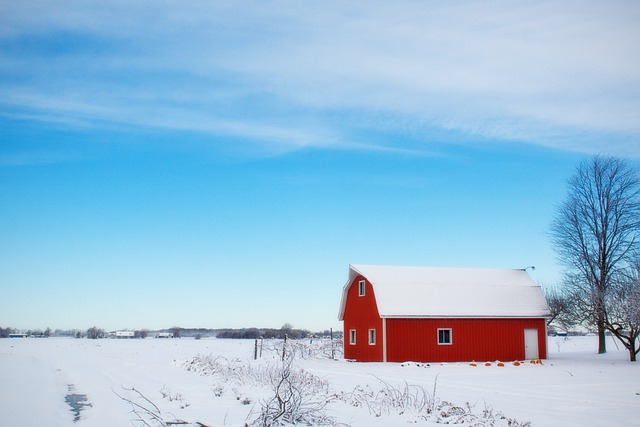
In selecting a farm shed solution that aligns with Shepparton’s local climates, the flexibility offered by both steel and wooden farm sheds plays a pivotal role. Steel farm sheds present a canvas for customization that can cater to various weather conditions, including those prevalent in the Shepparton region. Their robust construction allows for features such as insulation, ventilation systems, and durable coatings that are tailored to protect against extreme heat and cold. This adaptability ensures that the structure remains functional throughout the year, maintaining the integrity of stored goods or machinery.
Wooden farm sheds, with their inherent warmth and natural aesthetic, also afford a level of design flexibility that can be beneficial in Shepparton’s climate. The material’s ability to breathe and respond to humidity makes it a viable option for environments with significant temperature and moisture fluctuations. Additionally, timber sheds can be constructed with orientations and designs that maximize natural light and airflow, contributing to the comfort and efficiency of the space. Both steel and wooden farm sheds offer distinct advantages in terms of customization, enabling farmers in Shepparton to choose the material that best fits their specific needs and local climate characteristics. The choice often comes down to balancing durability, cost-effectiveness, environmental impact, and the desired lifespan of the structure, ensuring that whichever option is selected, it is well-suited to withstand Shepparton’s climatic conditions effectively.
Environmental Considerations: Assessing the Eco-Impact and Sustainability of Steel and Wooden Farm Sheds
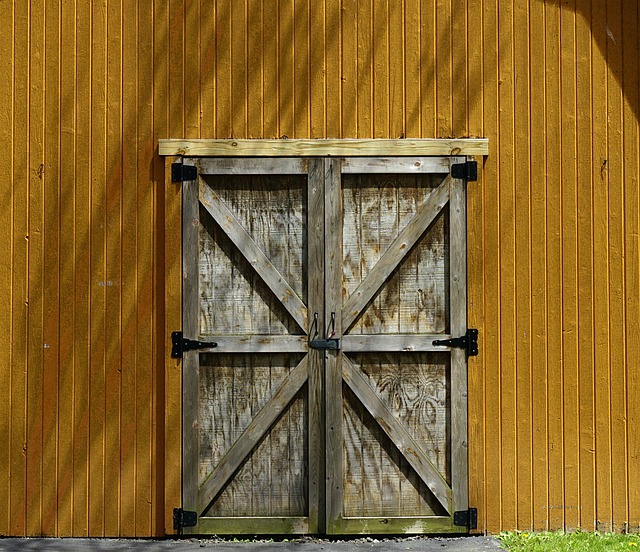
When evaluating the environmental impact and sustainability of farm sheds in Shepparton, both steel and wooden structures present unique advantages and considerations. Steel farm sheds are crafted from materials that are largely composed of recycled content, making them a highly sustainable option. The production process for steel involves less energy compared to other materials, reducing the carbon footprint associated with their fabrication. Furthermore, steel’s durability means that it can last for decades without significant maintenance or repair, minimizing waste and the need for ongoing resource use.
On the other hand, wooden farm sheds also offer environmental benefits, particularly when sourced from sustainably managed forests. Wood is a renewable resource that, when harvested responsibly, can be replenished over time. The natural insulation properties of wood help in maintaining a stable interior climate, potentially reducing energy consumption for heating and cooling. Additionally, the lifecycle of wooden farm sheds, including their deconstruction and potential reuse of materials, offers a pathway for sustainable management and repurposing. Both steel and wooden farm sheds contribute to sustainability efforts in different ways; the choice between them should be informed by local availability, environmental priorities, and the specific needs of the Shepparton agricultural community.
In Shepparton, selecting between steel and wooden farm sheds involves a multifaceted approach considering durability, cost, design flexibility, and environmental impact. The longevity of both materials demonstrates steel’s superior resilience against the regional climate’s harsh conditions, potentially offering a more sustainable long-term investment. Financially, while steel may demand a greater initial outlay, its low maintenance needs can translate to savings over time. Wooden sheds provide design versatility that may align with aesthetic preferences and local climate adaptability. Ultimately, the choice hinges on individual needs, budgetary constraints, and sustainability goals, making each option valuable for different scenarios. Farmers in Shepparton should carefully consider these factors to make an informed decision that supports their agricultural endeavors.
